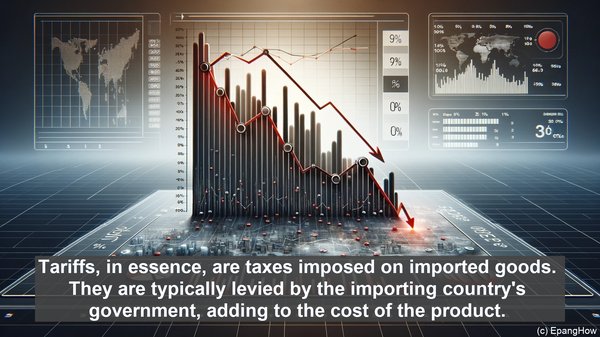Introduction: The World of Trade Policies
Hello everyone! Welcome to our article on tariffs and quotas, two key tools in the realm of international trade. As countries navigate the complexities of global commerce, understanding these policies becomes crucial. So, let’s dive in!

Defining Tariffs: Taxing Imports
Tariffs, in essence, are taxes imposed on imported goods. They are typically levied by the importing country’s government, adding to the cost of the product. The primary objective of tariffs is to protect domestic industries, as they make imported goods relatively more expensive. By doing so, tariffs can provide a competitive edge to local producers, stimulating their growth.
Exploring Quotas: Limiting Imports
While tariffs focus on taxation, quotas revolve around quantity restrictions. A quota sets a specific limit on the quantity of a particular product that can be imported within a given time frame. This limit can be in the form of units, weight, or any other measurable criteria. The aim of quotas is to control the inflow of goods, ensuring that domestic industries are not overwhelmed by foreign competition.
Comparing Implications: Tariffs vs. Quotas
Both tariffs and quotas have their unique implications. Tariffs, with their tax-based approach, generate revenue for the government. They can also act as a deterrent, making imported goods less attractive to consumers. On the other hand, quotas, by limiting supply, can create scarcity, potentially driving up prices. This can be advantageous for domestic producers, as it enhances the value of their goods in the market.
Flexibility and Control: Quotas’ Advantage
One key advantage of quotas is the control they offer. By setting a specific limit, governments can regulate the inflow of goods, ensuring it aligns with their strategic objectives. Quotas can also be adjusted based on changing circumstances, providing flexibility. For instance, during times of economic downturn, a country can reduce the quota, protecting its industries from excessive competition.
Global Significance: Tariffs and Trade Wars
Tariffs, due to their revenue generation potential, can be a tempting tool for governments. However, their imposition can have far-reaching consequences. In some cases, it can trigger retaliatory actions from other countries, leading to a trade war. This can disrupt global trade, impacting economies worldwide. The ongoing trade tensions between major economies serve as a testament to the significance of tariffs in international relations.

